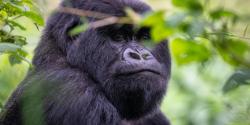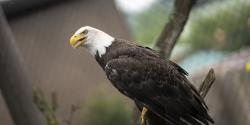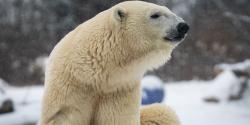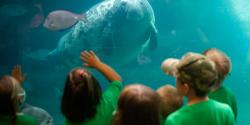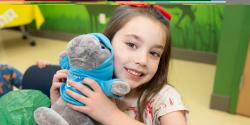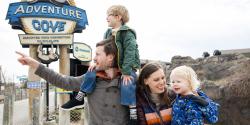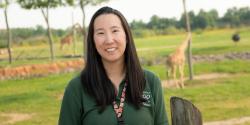A first-time mother’s journey from uncertainty to success reflects the power of expert care and community support.
Expert animal care is often measured not by how much is done, but by how carefully it is done. When bonobo Kibibi became a mother for the first time, her instincts were strong, but her technique needed refinement. Rather than rushing in, the Columbus Zoo and Aquarium’s Congo Expedition care team—supported as needed by the Conservation Medicine team—offered quiet guidance and patient support, giving Kibibi the chance to realize for herself that she could succeed.
Learning to Be a Mother
For bonobo Kibibi, motherhood began with careful observation. As a young female in the Columbus Zoo’s bonobo troop, she had watched her troop mate, Faith, nurture her son, Bob. Kibibi’s chance to put those lessons into practice came when she delivered her own baby boy. Labor went smoothly, and her maternal instincts surfaced right away. Yet, as with many first-time mothers—human or ape—the early days came with challenges.
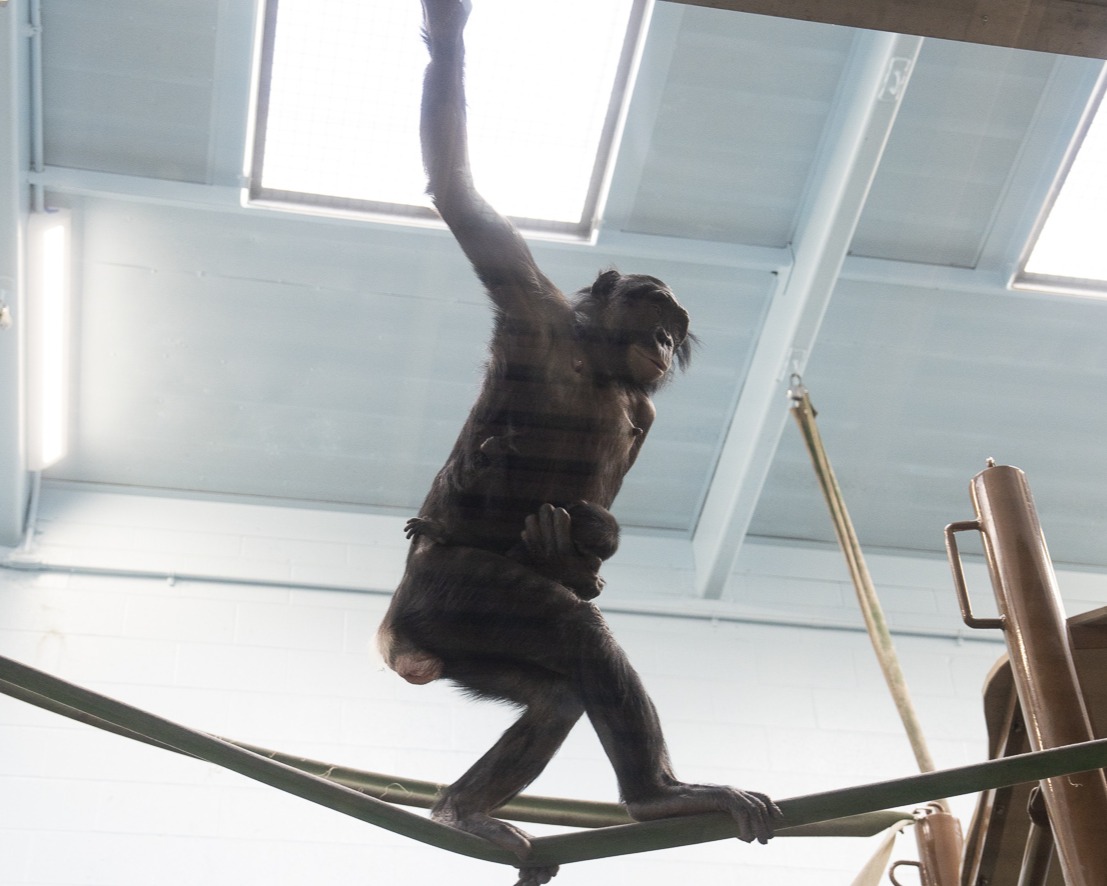
Kibibi was holding her baby too low near her groin, which made it impossible for him to nurse. For the first 48 hours, the Animal Care team gave her space to adjust, hoping instinct would guide her. When the newborn still had not latched, they gently intervened. Kibibi was lightly sedated, her baby was placed in the correct nursing position, and he latched immediately. But, when Kibibi woke, she returned to holding him too low, unable to bridge the final gap between instinct and technique.
For 10 days, staff stepped in with human-assisted rearing to help the infant grow stronger. The team was always with the infant, holding him 24/7, grooming him, playing with him as a bonobo would at that age, all while never leaving the building so the baby would be exposed to the sights, sounds, and smells of bonobos. All the while, Kibibi remained close, watching from her indoor habitat and spending time with Bob, the young male she had observed before. That social learning proved invaluable.
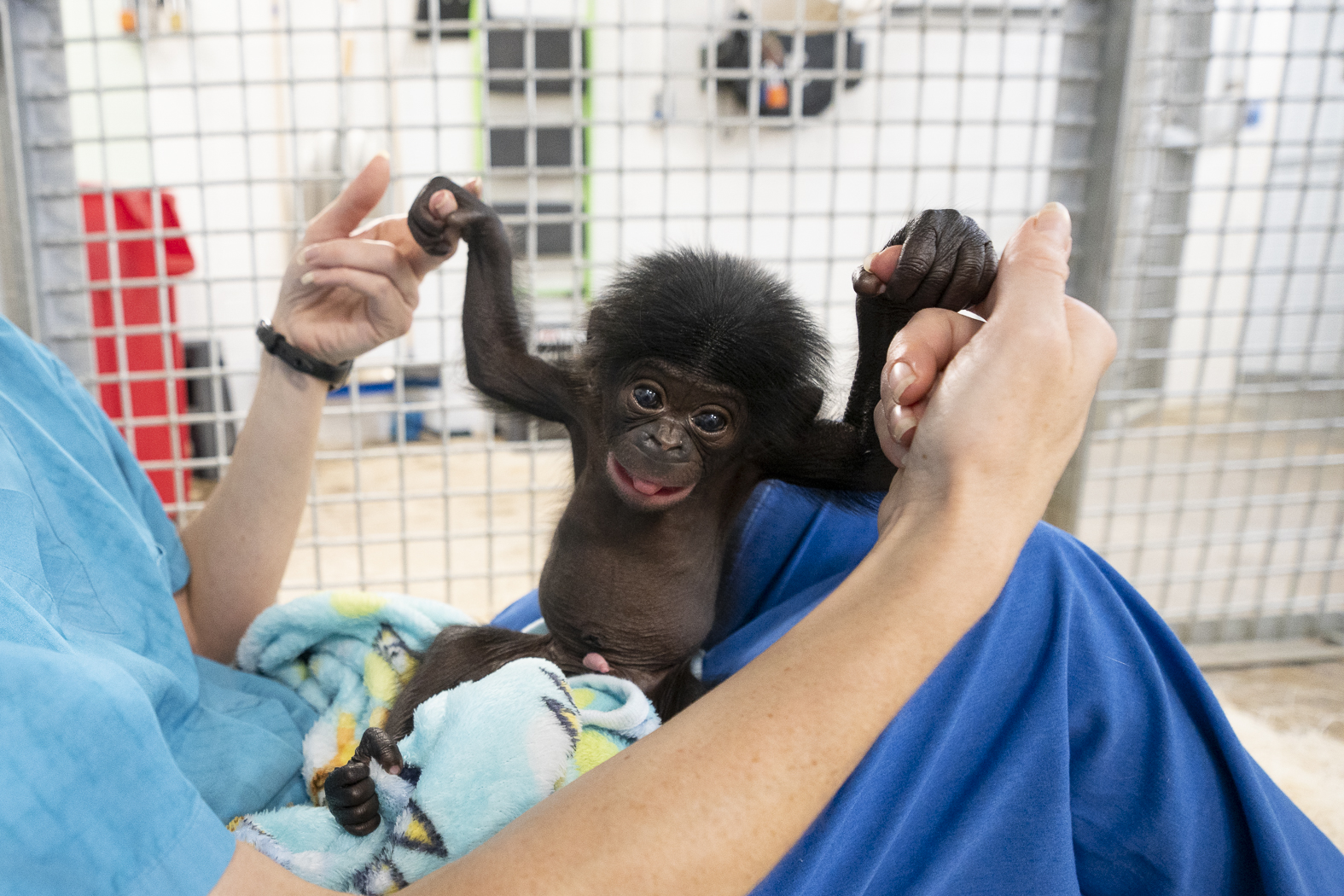
Finding Her Way
When the time felt right, the care team reunited Kibibi with her son. After a few hours, success! She shifted her hold, her baby latched, and nursing finally took hold. From that moment, Kibibi’s progress accelerated. Her milk production became steady with help from the team, and her bond with her son grew stronger every day.
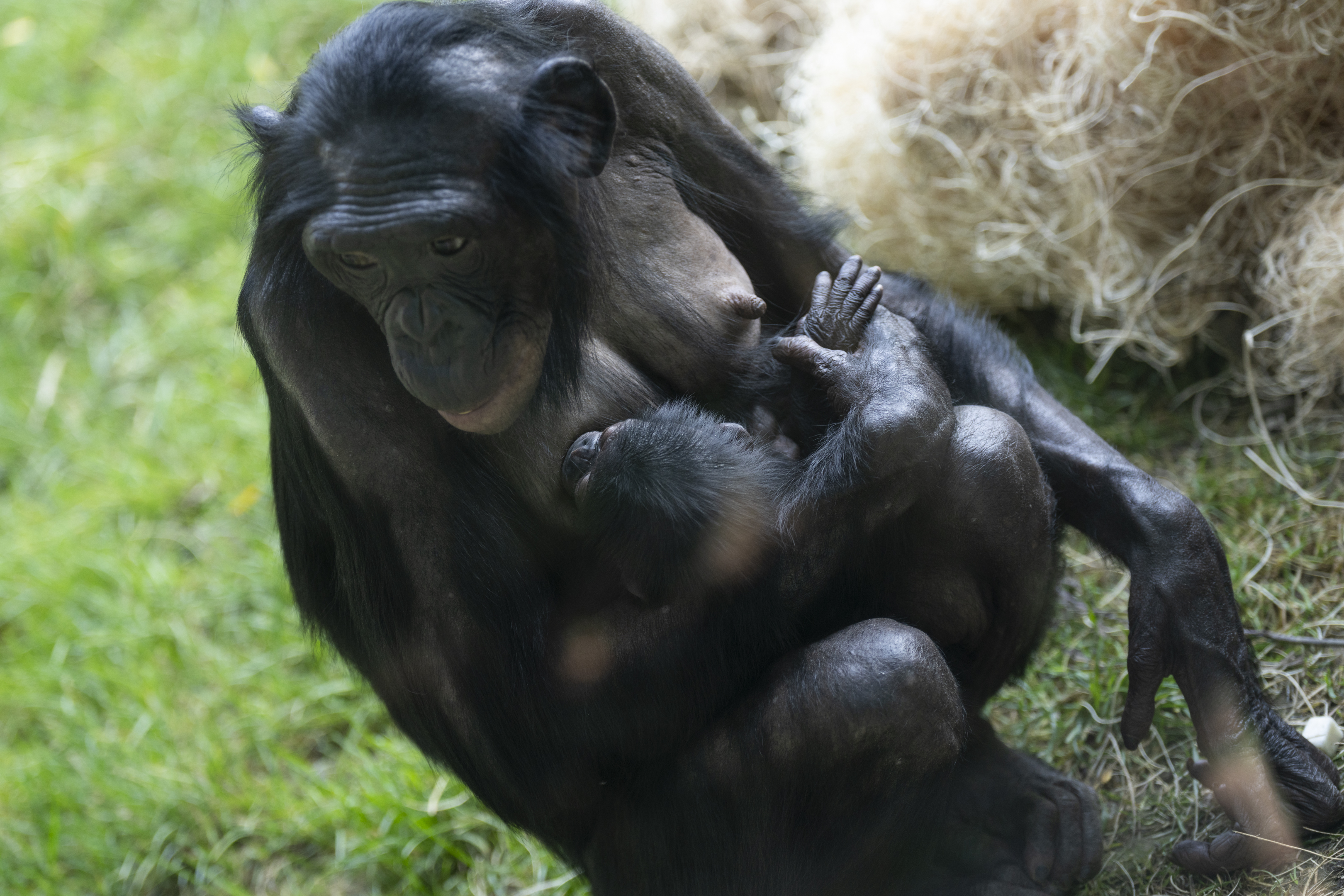
This turning point mattered for more than nutrition. In bonobo society, male offspring form close, lifelong bonds with their mothers. Helping Kibibi learn while still allowing her to lead the process was critical. Today, Kibibi is attentive and nurturing, her son is strong and active, and their bond is thriving.
Commitment Behind the Scenes
Behind Kibibi’s success was a devoted team of eight Animal Care professionals who worked in round-the-clock shifts to support her newborn. For 10 days, each caretaker became a “foster parent," feeding the baby bonobo human infant formula every two hours, often right in view of the bonobo troop so they could watch, smell, and gently interact with him.
“We worked in eight-hour shifts, and each of us became a foster mom for the infant,” said Region Curator Audra Meinelt. “Every two hours, we prepared his bottle and logged every detail — from his weight and heart rate to each nap and feeding.”
Between feedings, the team encouraged the infant to build strength by helping him push and pull, tracked daily vitals, and meticulously recorded every milestone. At night, staff members even slept in an empty bonobo room with the baby on them, just like his mother would do, ready to respond when it was time to feed.
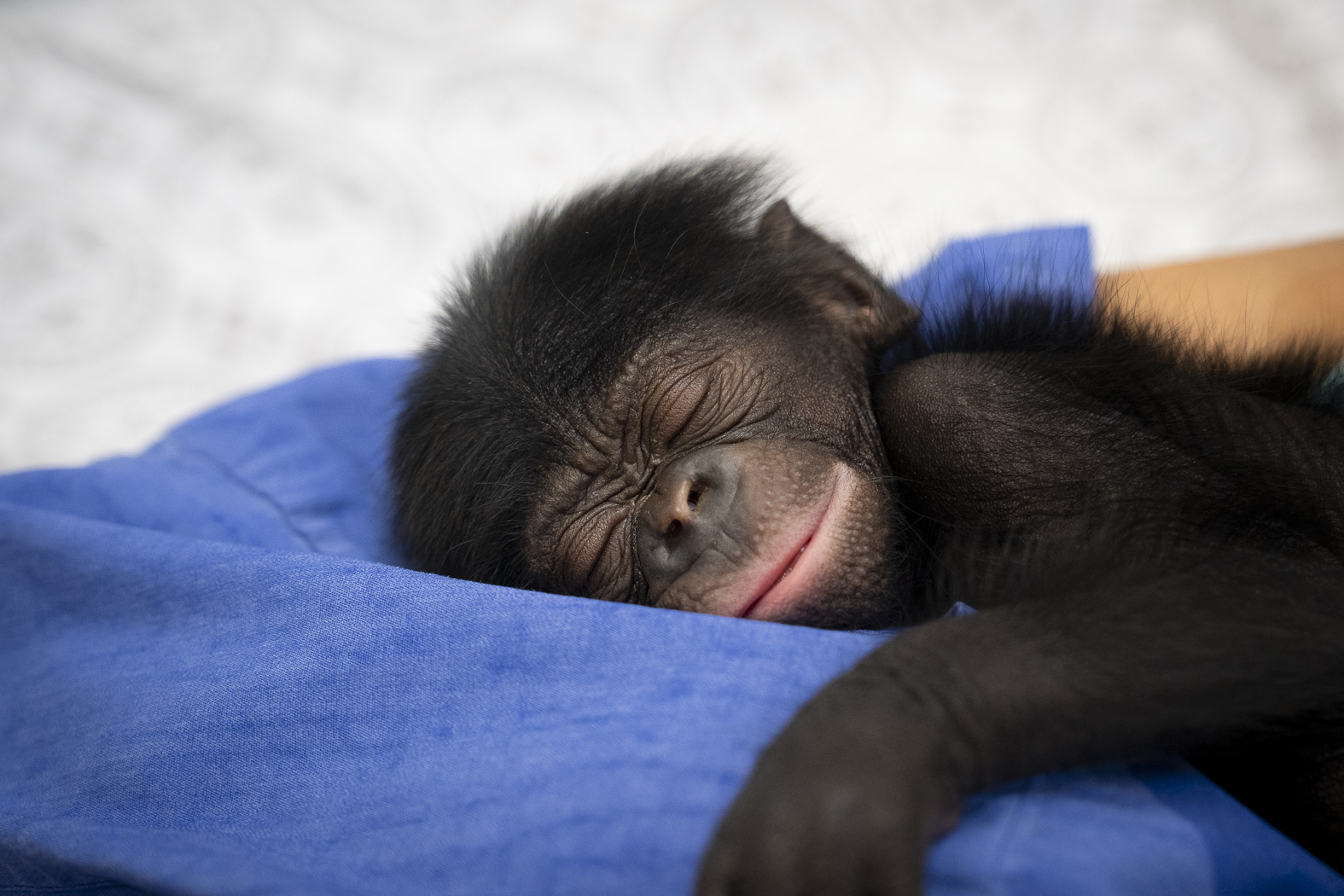
When reintroduction day arrived, the team placed the infant in a soft bed of woodwool and gently left the room. Kibibi and her family were quick to respond.
“Kibibi immediately picked him up, placed him on her chest, and began to groom him,” Audra recalled. “A few hours later, we confirmed the first nursing.”
For the next week, the care team observed Kibibi from dawn to dusk, monitoring her nursing, foraging, and rest to ensure both mother and infant were thriving.
A Species in Need
Bonobos are one of our closest living relatives, sharing about 98.7 percent of our DNA, but they remain one of the least understood great apes. They are found in the Democratic Republic of the Congo (DRC), where their forest home is threatened by habitat loss, hunting, and human conflict. Fewer than 50,000 are believed to survive in their native ranges, and the species is listed as endangered.
Every successful birth in professional care is significant for their future. Each one strengthens the knowledge needed to care for bonobos while also sustaining the global population. Kibibi’s success as a first-time mother is a reminder of how careful intervention and patient support can help secure the next generation for this remarkable species.
Bonobos Beyond Columbus
The Columbus Zoo and Aquarium is proud to support bonobo conservation both here and abroad. Guests can meet Kibibi and her son in the Zoo’s outdoor and indoor bonobo habitat, fittingly named for Claudine André, founder of Friends of Bonobos. The organization rescues and rehabilitates orphaned bonobos and protects their forest homes in the DRC. Through this partnership, and through the daily work of our Animal Care teams, the Zoo extends its commitment far beyond Central Ohio.
Learn about Friends of Bonobos
Gratitude for Support
Stories like Kibibi’s are possible because of the continued support of our guests and community. Every ticket purchased, every visit made, and every membership renewed directly contributes to the expert care provided for Kibibi, her son, and the thousands of animals who call the Columbus Zoo and Aquarium home. Together, we are not only celebrating the growth of a new bonobo family but also ensuring a brighter future for endangered species across the globe.
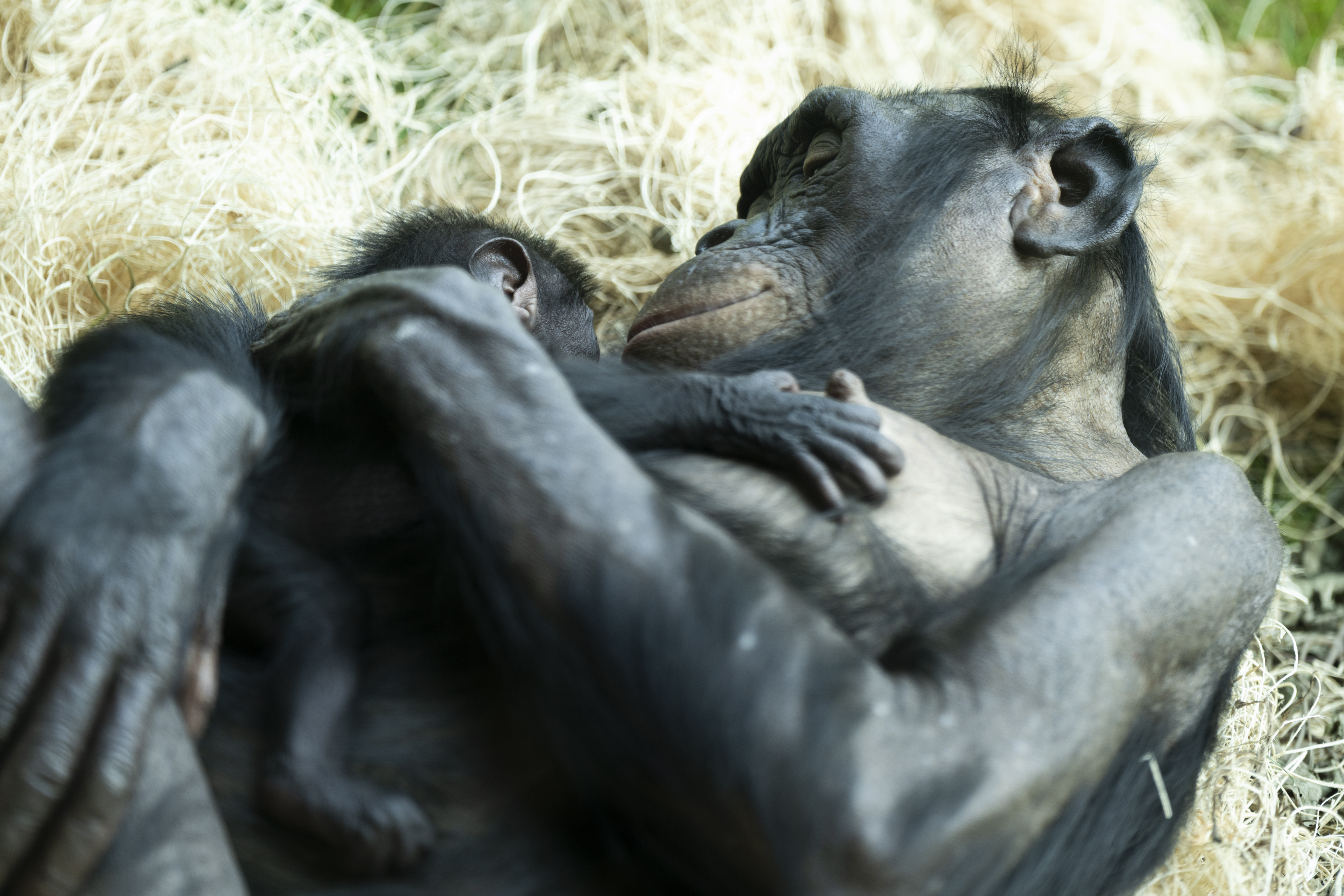
Meet the Bonobos at the Columbus Zoo Learn More about Bonobos

